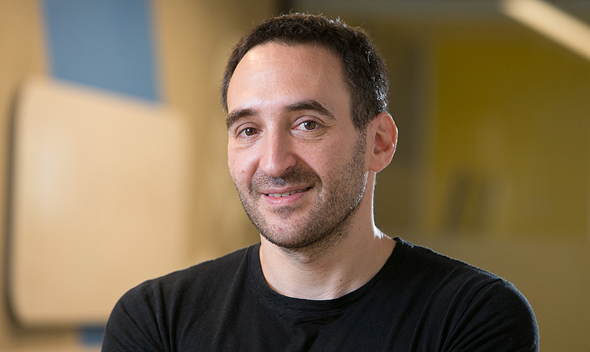
Battling boredom: What’s a CEO at an early-stage startup supposed to do?
Shaul Olmert shares his frustrations about days of inaction and the importance of being part of a team
Shaul Olmert | 17:41, 05.11.20
High-paying salaries, comfortable working conditions, designer offices, and fringe benefits like holiday gifts, restaurant deliveries, a kitchen office with a beer tap and fancy coffee machine, and a fridge brimming with goodies — these have all become the trademarks of the Israeli tech scene. But anyone who’s ever managed a team knows that though all these benefits are important to workers’ well being and satisfaction, there are values that are far more important.
Employees must first and foremost feel like they matter, that they contribute, that they provide value to the organization, and that the organization acknowledges that and treats them like human beings and not merely instruments. The tech industry is usually pretty good about that too. In recent years there has been a push towards transparency, employee evaluations accompanied by the setting of measurable performance goals, and creating an affinity between the tasks and goals of each employee and the goals of the overall organization. In light of all that, let me confess that at the new company I am founding, we haven’t quite reached that point yet.
Our team at Piggy, which only started working last month, totals six people (incidentally all male, which is a complex and problematic issue that is worth addressing in a future column). Five of them arrive at the office every morning and rush to complete their tasks, and usually continue after they go home at the end of the day, sending me progress reports. The only person who comes into the office every morning and leaves together with everyone in the evening, but finds little to do in between is (you guessed it) the CEO. Our team is made up of Ilan, who is my co-founder and chief product officer, who spends his days defining the characteristics of our future product, the ways it will be used, and conducting intensive research on the behavior and use of applications by our target audience; three programmers — meaning people who know how to talk to computers and tell them what they are supposed to do in a secret language that only they understand (and laugh out loud at Chuck Norris jokes, but that’s a different story); and a designer who takes our ideas, ads some of his own and turns them into something tangible. All this raises the unavoidable question — What am I supposed to do while they all work?
The truth is that after the initial period of setting up the company, raising funds, recruiting the team, and carrying out a few other technical procedures, the CEO doesn’t have much to do. It will change going forward. From experience, I know that when the product nears completion and we begin the marketing and distribution stage there will be tasks that require my attention, but truth be told, for the last two weeks I have been coming to the office in the morning, leaving in the evening and doing very little in between. Every day at noon, Ilan chooses a restaurant we order from, we all pick our lunch, eat together, and go back to work. Or rather the other five go back to work and I go back to staring at my monitor and look for things to keep me occupied. It’s a great opportunity to read up on market research, track our competitors, delve into not-terribly interesting administrative issues, every now and then squeeze in an episode on Netflix, write another blog post and take on every technical task that finds its way to my desk as if the future of the company depended on it.
But before you suggest that I take off early or go learn how to code and join the other programmers, there is value in the very fact that the CEO sits at the same desk with the rest of the team. By being present next to the employees, I’m getting to know them (and they get to know me) and understand what questions are arising and which challenges are being discovered. At the end of every day I have difficulty answering my young daughter’s routine question of ‘what did you do at the office today?’ but I’m still glad I was there. During this early phase of development, my contribution may not be felt tangibly but I’m becoming a member of the team. When the product matures and we reach the stage of marketing, distribution, business development, staff recruiting, additional rounds of capital raising, and all the rest, I’ll need this time I am accumulating to get to know my partners, so I can reach the next stages fully prepared.
Like me, most CEOs can’t stand being passive. We ache to take control, manage, and get into the action. This period of initial development by a small team can be frustrating, but it’s important not to shorten or skip it because it ends not just with a primary version of the product, but with a cohesive team in which people know each other, and the business setting we operate in, well.
As a manager, the important questions I need to address are how the people who work with me feel, what each one of them is doing, whether they are contributing, whether they are advancing professionally, and whether they feel appreciated. It is vital for me that the answer to all those questions be - yes, although for now, I’m the one who feels pretty redundant. Disguised unemployment is one of the tech sector’s worst excesses. The teams are large, lots of new people come on board and the division of tasks change often, so that unavoidably, some people will occasionally find themselves with less to do, while others may be busy, but doing tasks that aren’t necessarily noticed. Remind me of all this in a few months, when we are in an entirely different position. I have a feeling I’ll miss this temporary boredom.
On another note, any recommendations of podcasts, web series, audiobooks, and the like would be greatly appreciated (not for me, of course, I’m asking for a friend.)
Shaul Olmert is a serial entrepreneur and the co-founder and CEO of mobile app developer Piggy. He formerly founded interactive content company Playbuzz Ltd. You can find his previous columns here
